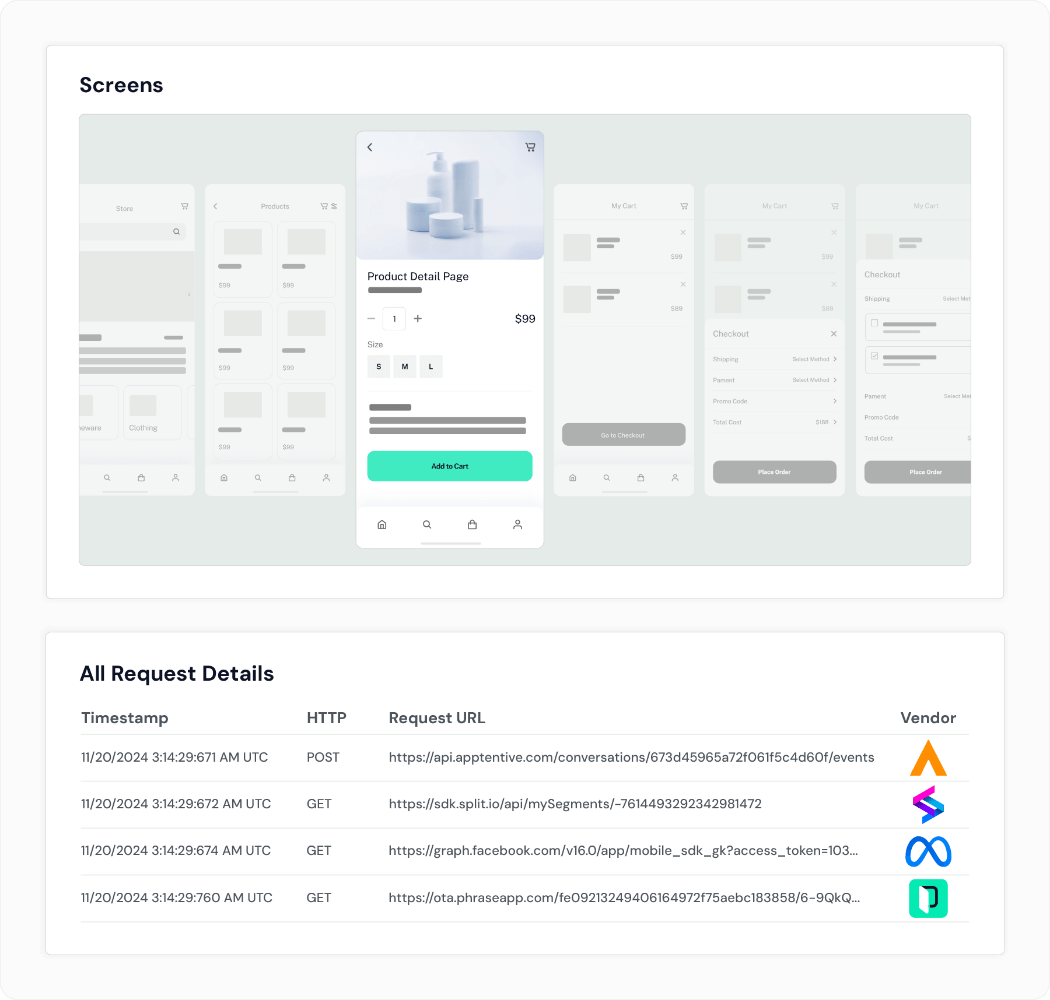
Vault JS Validate
Who Hasn’t Broken Some Privacy Laws Today?
With privacy violations becoming more prevalent and financial repercussions reaching into the billions, Vault JS Validate makes privacy compliance easy. It locates policy and cookie consent violations across multiple sites, mobile apps, and regions with absolutely no impact on the user experience.
Approximately 90% of businesses are non-compliant.
Even with a company’s best efforts, changes to your website, such as adding a video, may introduce unexpected violations without your knowledge. Even with the most carefully implemented CMP (consent management system), you have no guarantee of compliance without Vault JS.
If you can see it, you can fix it.
Vault JS gives you the information to fix your compliance risks. We also identify where privacy programs are underperforming or outperforming your peers, indexed by size, industry, and geography. To ensure accuracy and highlight misclassification risks, we use AI to compare cookie types.
Find violations before activists or regulators.
The tools that activists and regulators use to find policy violations are getting better. Yours have to be better than theirs to avoid fines, litigation, and customer mistrust.

Vault JS Secure
Hacked Martech Opens All Kinds of Doors
With everything you’ve done to secure your site, hacked third-party martech can still let intruders in. Vault JS Secure quickly finds vulnerabilities as they emerge.
Pull in your third-party data-thief welcome mats.
When threat actors go looking for easy targets, third-party martech can open the door to a data buffet. With Vault JS Secure giving you the full picture, you know what doors to slam shut.
For Security, Vault JS is a gift.
Vault JS is a solution that’s not also a burden. It automates martech oversight so you don’t need new headcount or a special team. And it’s installation-free: no code is installed on your site!
Press “Go” Monday. See value Tuesday.
You get 80% of Vault JS’s value right away, even with no human help. Within a day, Vault JS gives you a map of third-party entities and risks, and you can start acting immediately.
Industry-First Mobile App Monitoring
Mobile apps make privacy violations easier than ever. For example, if a consumer opts out on your website, state laws (such as CA and CT) put the burden on you to apply that decision to your mobile app, too. To stay safe, you must proactively check to see that data collection is turned off in your app for users who opt out on the web. Because if your third-party tracking technologies aren’t complying, you have a problem.


To ensure compliance, we follow the same paths your users do.
We fill out forms, shop, and duplicate all user actions, tracking the data your vendors collect. We can sign in with different profiles and preferences, even from different locations, to evaluate all possible scenarios. You get a full compliance report.
Protection from geolocation data collection risk is easy.
Customers and regulators hate it when companies use cell phone apps to track and sell sensitive movement and location data without permission. But vendor SDKs can collect data whenever the phone is on.
Vault JS knows what your digital tracking tech tracks.
Only Vault JS gives you a complete picture of everything your DTT collects. We capture all HTTP traffic, non-HTTP data collection, vendors who see your data, and the SDK methods used.
“With Vault JS, I have complete visibility. I’m basically doing a high-level privacy forensics test but at scale, thousands of pages. And I can understand the origin of where the scripts are coming from."
See if your organization's privacy compliance is putting you at risk.
Discover Vault JS

CIPA: Why Old Statutes May Be the Strongest Force of Web Privacy
Read More

Shah v Capital One CCPA PRA Risk
At a recent privacy event for Chief Privacy Officers in Los Angeles California, it wasn’t the relatively non existent CCPA (California Consumer Privacy Act) enforcement...
Read More

VPPA Legislative Risk
VPPA cases are on the rise, with dozens of class action suits being filed against all manner of companies. Risk occurs when the title of a...
Read More